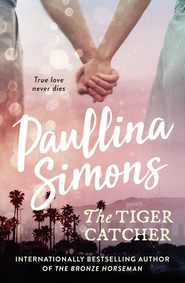По всем вопросам обращайтесь на: info@litportal.ru
(©) 2003-2024.
✖
The Summer Garden
Настройки чтения
Размер шрифта
Высота строк
Поля
They were leaning toward each other, the colonel in a wheelchair, the captain by his side.
Nick shook his head. “Look at me. Can you blame her? But not to worry—the army is going to get me a round-the-clock nurse soon. She’ll take care of me.”
They sat.
“Tell me about your wife,” Nick said. “She’s not afraid of me. Not like others around here. She’s seen this before?”
Alexander nodded. “She’s seen this before.”
Nick’s face brightened. “Does she want a job? The army will pay her ten dollars a day for my care. What do you say? A little more money for your family.”
“No,” Alexander said. “She was a nurse long enough. No more nursing for her.” He added, “We don’t need the money, we’re fine.”
“Come on, everyone needs money. You can get yourself your own house instead of living with crazy Janet.”
“And what’s she going to do with the boy?”
“Bring him, too.”
“No.”
Nick fell quiet, but not before making a desperate noise. “We’re on a waiting list for a nurse, but we can’t get one,” he said. “There aren’t enough of them. They’ve all quit. Their men are coming back, they want to have babies, they don’t want their wives to work.”
“Yes,” said Alexander. “I don’t want my wife to work. Especially not as a nurse.”
“If I don’t get a nurse, Bessie says she’s going to send me to the Army Hospital in Bangor. Says I’d be better off there.”
Alexander poured more needed drink down the man’s throat.
“They’ll certainly be happier if I’m there,” Nick said.
“They don’t seem like a happy pair.”
“No, no. Before the war, they were great.”
“Where d’you get hit?”
“In Belgium. Battle of the Bulge. And there I was thinking colonels didn’t get hit. Rank Has Its Privileges and all that. But a shell exploded, my captain and lieutenant both died, and I was burned. I would’ve been fine, but I was on the ground for fourteen hours before I got picked up by another platoon. The limbs got infected, couldn’t be saved.”
More drink, more smoke.
Nick said, “They should’ve just left me in the woods. It would’ve been over for me five hundred and fifty days ago, five hundred and fifty nights ago.”
He calmed down by degrees, helped by whiskey and the smokes. Finally he muttered, “She is so good, your wife.”
“Yes,” said Alexander.
“So fresh and young. So lovely to look at.”
“Yes,” said Alexander, closing his eyes.
“And she doesn’t yell at you.”
“No. Though I reckon she sometimes wants to.”
“Oh, to have such restraint in my Bessie. She used to be a fine woman. And the girl was such a loving girl.”
More drink, more smoke.
“But have you noticed since coming back,” said Nick, “that there are things that women just don’t know? Won’t know. They don’t understand what it was like. They see me like this, they think this is the worst. They don’t know. That’s the chasm. You go through something that changes you. You see things you can’t unsee. Then you are sleepwalking through your actual life, shell-shocked. Do you know, when I think of myself, I have legs? In my dreams I’m always marching. And when I wake up, I’m on the floor, I’ve fallen out of bed. I now sleep on the floor because I kept rolling over and falling while dreaming. When I dream of myself, I’m carrying my weapons, and I’m in the back of a battalion. I’m in a tank, I’m yelling, I’m always screaming in my dreams. This way! That way! Fire! Cease! Forward! March! Fire, fire, fire!”
Alexander lowered his head, his arms drooping on the table.
“I wake up and I don’t know where I am. And Bessie is saying, what’s the matter? You’re not paying attention to me. You haven’t said anything about my new dress. You end up living with someone who cooks your food for you and who used to open her legs for you, but you don’t know them at all. You don’t understand them, nor they you. You’re two strangers thrown together. In my dreams, with legs, after marching, I’m always leaving, wandering off, long gone. I don’t know where I am but I’m never here, never with them. Is it like that with you, too?”
Alexander quietly smoked, downing another glass of whiskey, and another. “No,” he finally said. “My wife and I have the opposite problem. She carried weapons and shot at men who came to kill her. She was in hospitals, on battlefields, on frontlines. She was in DP camps and concentration camps. She starved through a frozen, blockaded city. She lost everyone she ever loved.” Alexander took half a glass of sour mash into his throat and still couldn’t keep himself from groaning. “She knows, sees, and understands everything. Perhaps less now, but that’s my fault. I haven’t been much of a—” he broke off. “Much of anything. Our problem isn’t that we don’t understand each other. Our problem is that we do. We can’t look at each other, can’t speak one innocent word, can’t touch each other without touching the cross on our backs. There is simply never any peace.” Another stiff drink went into Alexander’s throat.
Suddenly Tatiana appeared in the dark corner. “Alexander,” she whispered, “it’s eleven o’clock. You have to be up at four.”
He looked up at her bleakly.
She glanced at Nick, who was staring at her with a knowing, full expression. “What have you been telling him?”
“We’ve just been reminiscing,” said the colonel. “About the good old days that brought us here.”
Slightly slurred, Alexander said he would be right back and stood up, knocking over his chair and swaying away. Tatiana was left alone with Nick.
“He tells me you’re a nurse,” Nick said.
“I was.”
He fell silent.
“What do you need?” She placed her hand on him. “What is it?” His moist eyes were pleading. “Do you have morphine?”
Tatiana straightened up. “What’s hurting?”
“Every single fucking thing that’s left of me,” he said. “Got enough morphine for that?”
“Nick …”
“Please. Please. Enough morphine so that I never feel again.”
“Nick, dear God …”
“When it gets unbearable for your husband, he’s got the weapons he cleans, he can just blow his brains out. But what about me?”
Nick couldn’t grab her, but he threw his body forward to her. “Who is going to blow my brains out, Tania?” he whispered.











